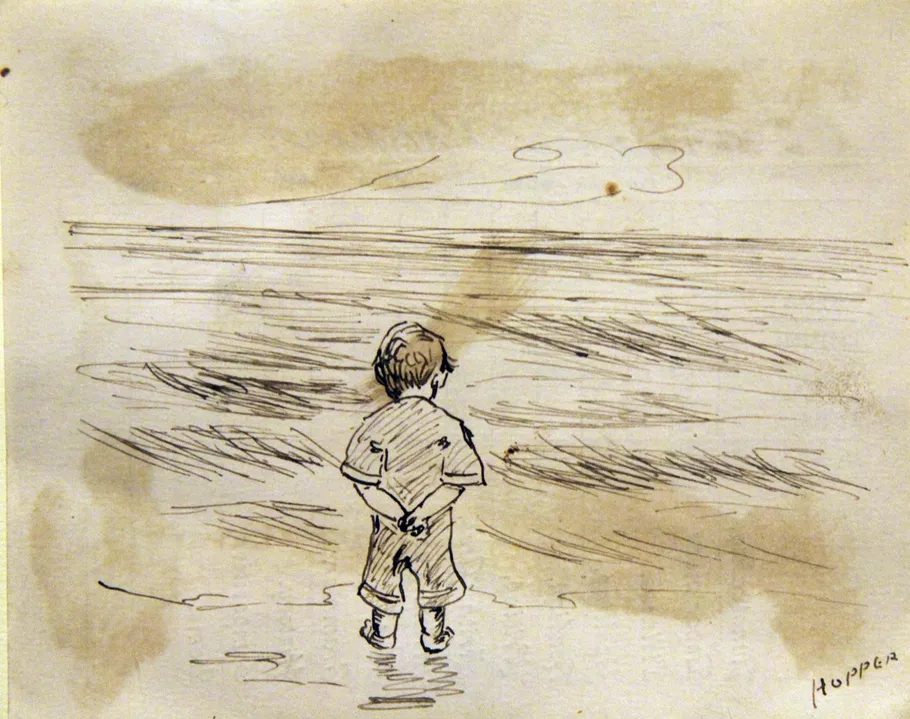The Noise of Silence
Papa used to yell moderation at the patters of my otiose footfalls, but now, he remains
indifferent even when I consciously stamp my feet on the hard floor. The sun recesses
at the appearance of a nimbus cloud, but these days, it does not blink even at the
presence of a downpour until it is time for it to set. Everything has become stubborn;
my room which used to echo when I yell in it, our family car which used to start once
you insert its key into the ignition and turn it. The gas cylinder which used to last for a
month once we fill it, even the foliage outside which used to bounce back when I try
to sweep it off were not left out. Then the stench of my farts, which used to linger like
a visitor who has refused to grace home, has become faint and ephemeral.
Papa, Mama and I used to have our separate rooms at the different corners of our flat,
although their rooms were much closer unlike mine which was separated by the
narrow sitting room in between. All the rooms are actually alike except for the
nuances. Mine had a puerile pink outlook, Mama’s had a peony outlook, bold like a
gory sight, while Papa’s was just plain. After my parents moved their luggage into my
room to share it with me, it became our room and therefore lost its resonance. Our
new tenants, whom Papa had rented out their rooms to, moved in not quite long, after
they must’ve washed their new residence.
Questions hung in my eyes while these happened, but I chose not to mouth them since
I can pluck my answers from my parents’ ripe sighs. I often wonder whether my
parents were comfortable in a puerile pinkish room, but their plain miens submitted
only vacant answer sheets. Each day I amble back home from lectures and my ears
weren’t waxed by the usual cracks of laughter in their throats, fear weaves cobwebs,
and leaves it hanging in my chest. Mama would open the door for me, espy my mien,
part and shut her lips without words, and give me a side hug. I always watch her lips
each time it parts, hoping it will curve into an arc or even an arch and emit some
sounds, but I never received more than a smirk. What happened? Why is everyone
and everything noiselessly taking a different, weird shape? I felt restless, like a series
obsessive who had missed plenty of story arcs in a series. Mama would serve dinner
and instruct everyone to close their eyes for a brief prayer. Then my ears would
scratch the atmosphere for whispers of prayers to no avail until after a few minutes
when Mama and Papa would chorus amen, and begin to eat. Our next door
neighbour’s infant son let out shrill cries now and then, but Papa, who used to be an
aficionado of tranquility would tilt his head to the rhythm of the cries whilst eating,
leaving my anxious eyes stranded, and I end up gaping. Other things changed, too.
The quantity and frequency of our meals, the rate of laughter and music plays, too.
Papa, whose presence was like the ungraspable air, had become handier than a
handbag. He would sit and gape vacantly in the vestibule after breakfast until dusk.
He would hum to passersby who cared to greet him and remain still. One-day, I had
tickled this silence when I sat beside him and asked whether he doesn’t work
anymore. He stole a gaze at me and averted his gaze quick enough to avoid my stare.
“Yes. Didn’t your mother tell you that I lost my job?” he asked. I stood up outright
and staggered.
“You say?” I asked. Dad squinted before his gaze rested on me as he simpered. He
said nothing else. Some teenagers were shambling back from school with their heavy
bags. They stole glances at us as they shambled away. Papa readjusted his feet, and
returned his averted gaze to its anterior position. There, he stared vacantly at the
school tots through the security bar door.
I tried taking another step and limped.
“Nwayokwa… take it easy.” He reached out to me.
After that day, I started cutting down my expenses and making savings, too. In my
head, I had caught the invisible fingers typing gibberish on the sedate keyboard of our
household; poverty.
My Grandma visited us a while later. I watched her amble in with her decrepit back
slouched by age. Her shaky, wrinkled hands supported her loose, outer wrapper
strapped on her lower waist in a careful gait. She had shed some weight in all the parts
of her body except for her long, droopy bosom, which slumped on her belly like a
sleeping giant. Even though her shirt wasn’t diaphanous, the size and shape of her
bosom were sporting as she wore no bra. Granny dislike being supported while she
walks, so I watched her take her time in entering our sitting room. Her head
shuddered in a deep sigh when she saw the wooden demarcation we made at the core
of the sitting room to create a clear distinction between our flat and our next-door
neighbour’s. I jogged to the kitchen to announce Granny’s arrival. There, I saw Mama
humming to an unknown old music and kneading eba. She looked up when she felt
my presence, and I winked at her.
“Zedenze m ze nwoye, is here,” I said, hinting at Granny. Those were the keywords in
Granny’s favourite folklore, and we, sometimes, dub her as that. Mama winced. Her
baton fell from her grasp and landed hard on the concrete floor, gbai! I gaped at her
supposed overreaction, but chose silence over the hellish questions upsetting my head.
Picking up the baton from the floor, I moved closer to the gas cooker.
“Let me continue from where you stopped,” I said, washing the baton at the sink.
When I turned, I saw Mama supporting herself by resting her right arm on the coarse
wall. Her left hand rested on her chest, as if to feel her heartbeat.
“Mama, are you alright?” I asked. She made a partial turn to face me, and nodded in
affirmation, but there was something I couldn’t grasp. She gestured yes, but her eyes
screamed no. I could see a visceral atmosphere of woe, spreading like a pandemic all
through the corners of her eyes. I ruminated over the recent happenings, but could not
find a space to blame for her care. Eventually, I gave my mind the bench of poverty to
settle on. There was one extra mouth to feed, Granny, and so, Mama’s fear must have
been nursed by our recent impoverished status. I concluded it was the fear of falling
behind Granny’s feeding expectations that was eating Mama up.
Mama confesses to me every day without parting her lips. Yes, she spoke soft words,
but I listened more to her body language which suggested the opposite. Papa was the
one who was always smiling, and barely talking. He always showered the space with
vacant gazes as though he was indebted to it. He never makes any sentence without
referring back to Mama, and he won’t answer any question I asked him without
asking whether my mother didn’t tell me. Yet, there were questions I couldn’t ask
him, especially about the visceral woe Mama’s eyes were donned in, and the omen
behind Granny’s constant sigh. Granny has not spent up to an hour in our house
without sighing. She sighed before she ate, she sighed after eating. She sighed before
and after every single activity she was engaged in. For that, I suspected and eschewed
her. After all, the woe in Mama’s eyes spread faster the moment she arrived.
However, she always sought for my attention.
“Won’t you come to Grandma?” she would ask each time she catches me espying her
from afar. When I move closer, she will only ask hackneyed questions and grin, even
when I said nothing funny. One-day, I was tempted to ask after her constant sigh, and
I didn’t bother to resist that temptation.
“Granny, why do you sigh so often?” I asked. She smirked as her left hand found its
way to her forehead, which she rubbed.
“Eeh… my daughter, It’s nasal congestion,” she said in Igbo. I nodded in hindsight,
but saw a silhouette of her sighs in my brother, Dr. Mezie’s mien when he arrived a
few days later. It was in that of his wife’s, too. So I had to ask whether anyone died. I
had always known Dr. Mezie’s presence to be a dessert which has better tendency to
make one hungrier than sated, but he was eerily relaxed this time around. He took a sit
and whiled away time without whining that one patient or the other was waiting for
him at the hospital. I wondered if he had lost his job, too, and asked him outright
because I was getting sick of all the secrecy.
“Brother, did you lose your job, too?” I had asked. He ran his right hand over his
head.
“God forbid! Why would you even wish me that?” he asked, turning to look at me. I
gulped. It became clear to me that he was on holidays or something close to that, but
what warranted that abrupt holiday and visit? That I couldn’t ask because I had
already lost my chance.
However, my guts were getting built around the fact that there are unsaid words
behind the silence of all is well. Words too heavy to pour into me, perhaps because it
will flood my visceral core. Words that lingered like cravings during eumenorrhea,
and I wanted to satisfy them to ease my cramps. I got a hint from the eyes of my
brother’s wife, which suggested pity, and my heart raced as I feared for my parents,
especially Papa. His mien with subtlety has been losing its originality ever since he
started staying indoors. I got more suspicious when Mama showed me my travel
papers, and told me I would be travelling out in a few weeks, to further my education.
I had turned it down because I was yet to complete my first degree programme which
was already running, and mostly because I felt there were sending me away. Trying to
smuggle me out of some sort of esoteric event, which was bound to occur soon. Mezie
talked me into accepting the papers, and preparing for my travel. I did so with
reluctance, and an intended ruse of tricking them into believing that I concurred with
the travel while I had other plans. Plans I might never execute because I fell sick soon
after.
Recoiling at the extreme edge of my bed, I couched in pain. Papa’s bed had long been
sold, so he shared Mama’s bed with her. Mama did not walk to her bed, which
recoiled at the extreme of our cluttered room when she entered the room. Instead, she
sat at the shroudless edge of my bed and felt my temperature. There were quirkily no
ounces of surprise on the walls of her face, as though my ill health wasn’t an anomaly.
She gave me some pills and a cup of warm water, and cosseted my back while I took
them. Mezie and his wife, Mega, walked in and sat at the other edges of my bed. Papa
was the last person to amble in, as Granny was fast asleep. His hands couched on his
back as he walked, but he didn’t sit on my bed like the rest, he stood a few minutes
away from my bed frame, watching me. There was this piteous aura in the room
which lured me into an inferno of unease, and I felt miserable.
“What? It’s just a minor illness, I’m not going to die,” I blurted.
“Minor?” my brother repeated after me. My eyebrows enlarged confused. I tried to sit
up, but my elbow was too weak to prop up my body, so I fell back. Mezie looked
from Papa to Mama, his eyes full of questions which screamed; I need some
explanations. I espied them like a lost chick, searching for mother hen.
“You didn’t tell her?” he continued, still looking from Mama to Papa. My mind went
on a scavenging journey and I found some lies lying in some words Papa had said to
me. Papa owned a company, how come he said he lost his job?
Mama tapped Mezie, but he shrugged her off.
“No, don’t try to silence me,” he said. “She is supposed to know. I mean, how can you
keep something this vital away from her?” he asked. Papa squinted, but said nothing.
Mama, on the other hand, kept making restive stirs on the bed. Their miens suggested
guilt, but what were they feeling guilty of?
“How then does she take her drugs?” Mezie asked Mama. She sighed.
“I put them in her food,” she replied.
I chuckled. Everything sounded silly and surreal to me. Mezie turned to face me.
“Dera,” he began. “Hope you know that you have less than a day left to live,” he
announced. “Dad sold his company, and rented out half of the apartment in a fruitless
attempt to raise money for your treatment, are you also not aware of this?” he asked,
glaring at me. “Those days Mama took you to the hospital, what did you think you
went there to do?” he continued. I vacantly stared back at him, saying nothing. Mama
cleared her throat.
“I told her it was for medical checkups,” she said. Dr. Mezie chuckled, still staring at
me.
“They even tried flying you out of the country before the deadline, to explore further
chances of elongating your life span, but you were granted the VISA late,” he
explained.
My body began to tremor, and I couched in intense pain. Sudsy water found their way
out of my mouth and I shrieked. I was hearing shrill chirps of butterflies in my ears,
and I suffered from fear more than I did from pain. Fear of never being able to; do
things I would’ve loved to do, munch gourmet dishes, and snacks I would’ve loved to
taste, gone to places I would’ve loved to visit, had I known I was living my last days.
Those were the noise in my parents’ silence that piqued the fear I dwindled in as life
crept out of me.
Contributor’s Bio
Sandra Uche Delumozie is a fresh graduate of English and Education at Nnamdi
Azikiwe University, Awka. She is a passionate writer and a poet who believes she
lives to write. She has works in; Carried away, Illino magazine, Artingarena
magazine, 20somethingpubs, etc.



